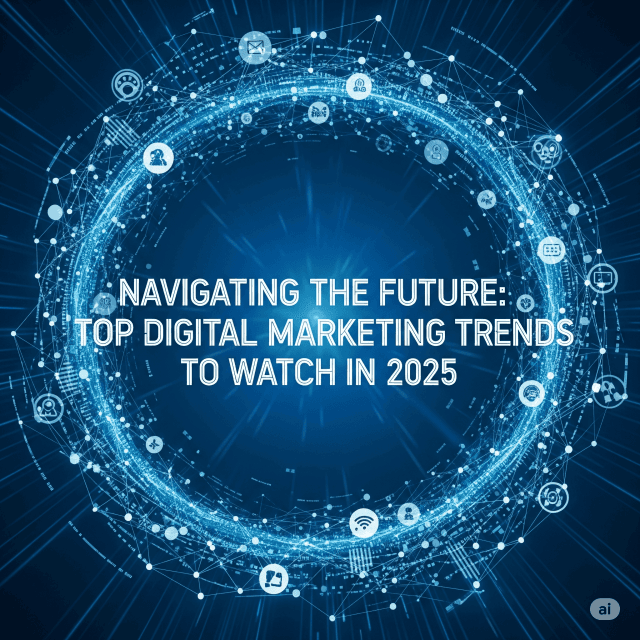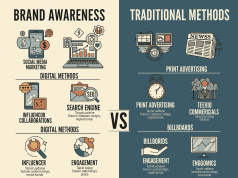As businesses seek to stay competitive in an ever-evolving landscape, digital marketing continues to undergo rapid transformation. The advent of new technologies and shifting consumer behaviors are reshaping how companies connect with their audiences. As we step into 2025, here are the top digital marketing trends to watch.
1. Enhanced Personalization
Personalization is not new, but its implementation is becoming increasingly sophisticated. Brands are leveraging big data and AI to deliver hyper-targeted content and experiences to consumers. In 2024, expect personalization to be more seamless through adaptive content—websites and emails that dynamically change based on user behavior, preferences, and demographics.
2. AI and Machine Learning
Artificial intelligence (AI) is at the forefront of digital marketing innovation. From chatbots to predictive analytics, AI is helping marketers automate processes, enhance customer service, and gain insights from vast amounts of data. Machine learning algorithms will continue to improve campaign targeting and outcomes, making it crucial for businesses to adopt these technologies to remain relevant.
3. Voice and Visual Search Optimization
With the growing popularity of voice-activated devices and visual search capabilities, optimizing content for these platforms is essential. Marketers should focus on using conversational keywords and structured data to cater to voice searches. For visual search, optimizing product images and utilizing platforms like Google Lens can open new avenues for customer engagement.
4. Short-Form Video Dominance
Platforms like TikTok and Instagram Reels have popularized short-form video content, and this trend is only set to grow in 2025. Brands that harness the creativity and authenticity of these platforms will likely see significant engagement. Creating bite-sized, impactful videos that tell a story or demonstrate a product can be an effective way to capture audience attention.
5. Sustainability Marketing
As consumers become more environmentally conscious, transparency and sustainability in marketing practices will gain importance. Properly highlighting a brand’s commitment to sustainability can earn customer loyalty and enhance brand reputation. Businesses should consider integrating sustainability into their marketing narratives while being genuine about their efforts.
6. Augmented Reality (AR) Experiences
Augmented reality offers new opportunities for immersive marketing experiences. Brands across industries are using AR to allow customers to preview products in real-world settings. These experiences not only enhance engagement but also aid in the decision-making process, ultimately leading to higher conversion rates.
7. Social Commerce Expansion
Social media platforms are evolving into full-fledged shopping experiences. Tools that allow users to purchase directly from their feeds are becoming more prevalent. Brands should leverage this trend by creating shoppable posts, streamlined checkout processes, and integrating their e-commerce sites with social media platforms to capitalize on impulse buying.
8. Data Privacy and Ethical Marketing
As regulations surrounding data privacy tighten, marketers will need to adapt their strategies accordingly. Transparency and ethical use of customer data will be paramount. Being upfront about data collection practices and prioritizing user consent will help build trust and foster lasting relationships with consumers.
Conclusion
The digital marketing landscape is constantly changing, and staying ahead of these trends is essential for businesses aiming for success in 2025. By embracing personalization, AI, voice and visual search optimization, short-form video content, sustainability practices, AR experiences, social commerce, and ethical marketing strategies, brands can navigate the complexities of the digital world and thrive in the future.
As we move forward, flexibility and innovation will be the keys to unlocking new opportunities and effectively reaching target audiences. Marketers who observe these trends and adapt accordingly will be well-positioned to lead in the years to come.









